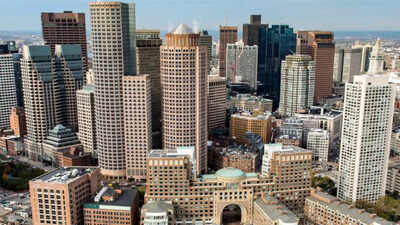ARTICLE AD BOX

“Most apartment owners are like, ‘I can’t take the risk,’” says Boston realtor Terry Leung, according to WBUR. His remark points to a challenge much larger than Boston’s housing market — the growing uncertainty international students face as visa approvals slow down.Every fall, Boston braces for a new academic year with thousands of international students arriving to fill classrooms and apartments. But this year, visa backlogs have disrupted that rhythm. Students who have secured admission offers and even arranged housing are unable to move forward without an approved visa. Many landlords, as Leung explained, refuse to consider applications until visas are confirmed, leaving apartments in student-heavy neighborhoods like Allston and Mission Hill unexpectedly vacant well into the summer.
Beyond Boston’s rental market
The housing slowdown is only a symptom of the deeper issue. According to WBUR, international students are encountering longer waits for visa consultations and interview appointments. The Trump administration’s policies, including the addition of social media screenings in June, have made the process more time-consuming and unpredictable. For students, the uncertainty is not just logistical; it is emotional.
Until visas are issued, they cannot book flights, confirm housing, or begin the transition to their new academic lives.While the broader Boston rental market had a normal leasing season, neighborhoods reliant on international student renters lagged sharply behind.
The cost of waiting
The stakes are far higher than housing. International students are integral to the U.S. higher education system and its economy. Last year, they contributed $43 billion to the national economy through tuition, housing, food, and transportation, according to the Association of International Educators. “This is going to have a big ripple effect on local and state economies,” Sarah Spreitzer of the American Council on Education told WBUR.Universities in Boston are already preparing for disruption. Northeastern, where nearly two-thirds of graduate students are international, has offered options like remote learning, deferrals, and enrollment at its London and Canada campuses, WBUR noted. Other institutions are exploring similar contingency plans to ensure students don’t lose an academic year because of visa delays.
Looking ahead
The Association of International Educators predicts up to a 40% drop in new international student enrollment this fall.
For Boston, a city whose academic ecosystem is deeply tied to global student mobility, the implications are sobering.“I think all of our institutions are planning for a very real possibility of having fewer international students here in the United States come fall of 2025,” Spreitzer told WBUR.For students still waiting for visa appointments, the uncertainty is more than a policy issue, it is a pause on their ambitions. And for Boston, the empty apartments in Mission Hill and Allston stand as a visible reminder of how delays at embassies can ripple through universities, neighborhoods, and economies.TOI Education is on WhatsApp now. Follow us here.



.png)
.png)
.png)
















 6 hours ago
3
6 hours ago
3









 English (US) ·
English (US) ·